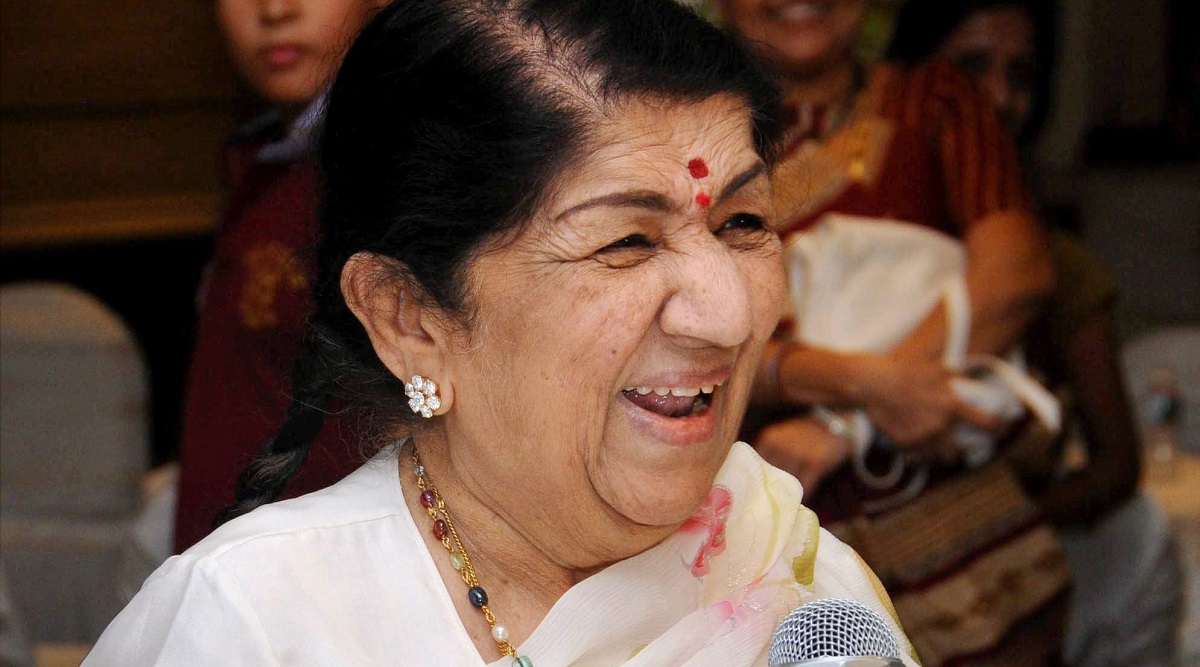 File photo of Lata Mangeshkar speaking during a function in Mumbai. (PTI)
File photo of Lata Mangeshkar speaking during a function in Mumbai. (PTI) “We lost a voice that nurtured the consciousness of every Indian after the country’s Independence. You cannot imagine any occasion in the life of an Indian, from birth to death, without finding a song by Lata Mangeshkar to fit it. Her music was so pure that she even demolished the distance between popular and classical. Through her singing, even for absurd situations in Hindi films, she could enable a lay person to reach the level of appreciating classical music,” says Pune-based theatre director Satish Alekar.
Mangeshkar died on Sunday in Mumbai’s Breach Candy Hospital at the age of 92. Her long association with Pune continues through the impression she made on countless music lovers of the city and the legacy of Marathi and Hindi music, among others. She had sung for films and albums, and enabled a new understanding of the philosophical world of the sant parampara through presentations of Tukarama and Dnyaneshesh. “Many of us understood Dnayneshwari because of Lata ji’s voice, which had been tuned by her brother,” adds Alekar.
One of Mangeshkar’s closest connections with the city was through the family of the late Pt Bhimsen Joshi. The two doyens had known each other since their struggling days in the 1940s and remained so affectionate even later that Mangeshkar organised Joshi’s concerts many times and got sponsors. In 1985, they released an album of bhajans, titled Ram Shyam Gun Gaan. Pt Bhimsen Joshi’s son, Shrinivas Joshi, who was present at a few of the recording sessions, says, “I witnessed how much they respected each other and each other’s music. There were healthy interactions between them as they worked. She used to call him Anna and, for him, she was Lata Bai. When she came home, I found that she was a very simple person. She had no airs.”
While Dhananjay Gokhale, a family friend, remembers a witty person and a lover of painting who brought her dedication to every activity, including cooking, Rahul Deshpande, a singer and grandson of the legendary Vasantrao Deshpande, recalls her kind of purity and energy. “Lataji had instituted an award in the memory of her father, the Deenanath Mangeshkar Award, and I was fortunate to receive it from her on April 24, 2012. I sang at the function, twice. The second time, Lata ji was not well and nobody was allowed into the green room, where she was sitting, but Adinath Mangeshkar took me inside and she asked me to sit beside her. The kind of energy or aura she carried with her was so intense that I had tears in my eyes. She was loving, like a mother, with the quality of vatsalya,” he adds.
The government has announced a two-day national mourning. In the city, cultural events, such as Abhivadan, a three-day concert in memory of Pt Bhimsen Joshi, have been postponed. For music lovers, it is a day to tune into Mangeshkar’s evergreen songs. “We are orphaned today because we will never get to see this kind of purity and energy again. Lata ji, for me, was like Vitthal, because the sur that came from her had a touch of the divine. I don’t know any other person who had that power of the divine,” says Deshpande.
- The Indian Express website has been rated GREEN for its credibility and trustworthiness by Newsguard, a global service that rates news sources for their journalistic standards.

